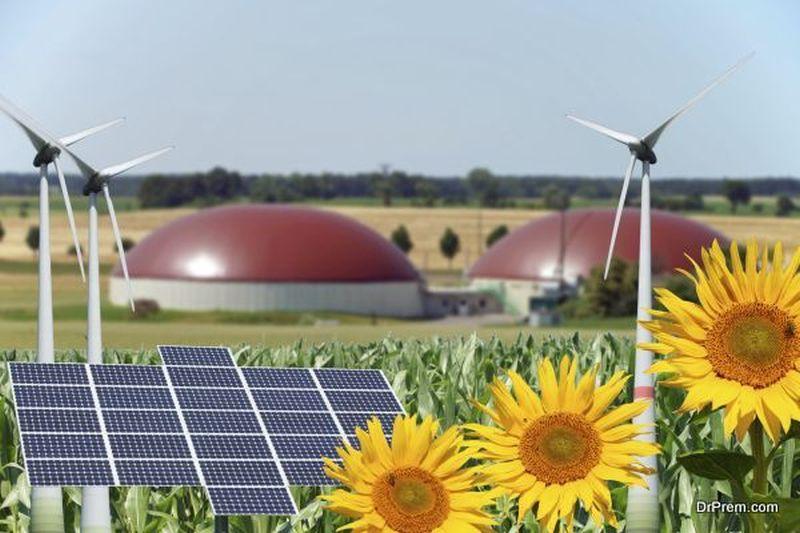Data-driven energy decisions are crucial for eco-conscious consumers seeking to reduce their environmental impact while benefiting financially. Sustainability is a social responsibility, and understanding the ripple effects of our energy choices is imperative. The journey begins with recognizing the potential of energy-oriented decisions.
Benefits of Smart Energy Decisions
Embracing smart energy decisions offers a beacon of hope for the environmentally conscious. Energy choices that favor sustainability help curtail emissions of harmful greenhouse gases and play a pivotal role in safeguarding our planet for future generations. Moreover, financial prudence intertwines with ecological wisdom, as energy-efficient approaches often translate to reduced utility costs. Whether by committing to renewable energy sources or optimizing energy usage at home, these decisions enable individuals to become torchbearers of change, providing a template for responsible living that others can emulate.
Renewable Energy Options
The pivot towards renewable energy is a cardinal component of the global sustainability crusade. Technological evolutions have made solutions such as solar, wind, and hydroelectric systems more attainable and cost-effective. These renewable sources symbolize a steadfast commitment to an eco-friendly lifestyle, severing the dependency on non-renewable, polluting fossil fuels. What once seemed a distant dream for the average consumer has now unfolded into a tangible reality, with the installation of renewable systems being a profound step towards a particulate-free horizon.
Energy Management Strategies
Effective energy management is grounded in clearly understanding one’s consumption patterns. It requires keen attention to where and how electricity is squandered—often in the quiet hum of standby appliances or inefficient lighting. Initiatives such as routine energy audits shed light on these covert energy drains while facilitating the adaptation to energy-efficient practices. Structured management, combined with consistent monitoring, can thus lead to a significant contraction of one’s carbon footprint and bolster the pillars of a sustainable home environment.
Integrating Technology in Energy Management
Technology has become a linchpin in energy management, offering tools for meticulous control and intelligent consumption. Innovative thermostatic solutions and cutting-edge, energy-aware appliances can effectively trim down wastage, forging the path for maximal energy utilization with minimal environmental imprint. Innovations such as smart meters offer instantaneous insights into energy utilization patterns, enabling real-time adjustments that lead to efficiency gains. The symbiosis of technological progress and energy conservation strategies empowers consumers to take charge of their energy narrative in unprecedented ways.
Financial Incentives for Energy Efficiency
The journey towards an energy-efficient home is incentivized by various financial mechanisms to make green alternatives more appealing to the end-user. Governments, recognizing the collective benefit of reduced energy consumption, often extend tax credits, rebates, and grants to homeowners making efforts to minimize energy misuse. These provisions can defray the upfront costs associated with greener appliances or renewable energy installations, making them a fiscally prudent choice that rewards proactive energy stewardship.
Eco-Friendly Home Upgrades
Transitioning to an eco-friendly dwelling need not be monumental; even modest home upgrades can significantly impact. The switch to energy-saving LED or CFL bulbs, the infusion of smart thermostats to regulate home heating and cooling, or the introduction of low-flow plumbing fixtures are all small yet decisive strides toward an energy-conscious lifestyle. These enhancements contribute to the global cause of reducing energy demand and resonate with the consumer’s quest for decreased operational costs, aligning environmental stewardship with economic sensibility.
Community Action Towards Greener Living
Individual actions, while significant, are bolstered by the collective determination witnessed in community initiatives. From neighborhood solar endeavors to group engagements for renewable energy education, community-level actions substantiate the narrative that a joint force can lead to formidable strides in the energy domain. These communal efforts exemplify the potency of shared values and collective action in the energetic march towards a sustainable and vibrant energy future for all.
The Future of Energy Consumption
The future of energy is green, with advanced technology and informed consumer choices leading the way. Personal energy consumption choices will define the global environmental landscape. Decentralization is gaining ground, allowing for local and sustainable energy generation and consumption for the betterment of the planet and human progress. To delve deeper into the concept of responsible energy choices, the EPA’s Energy Resources Calculator emerges as a potent tool. Meticulously estimating one’s carbon footprint provides a concrete starting point for personal sustainability. On another front, an enriched understanding of the spectrum of energy sources can be gleaned from the in-depth exploration offered by the U.S. Department of Energy, illuminating progressive energy pathways worthy of pursuit.
Article Submitted By Community Writer




